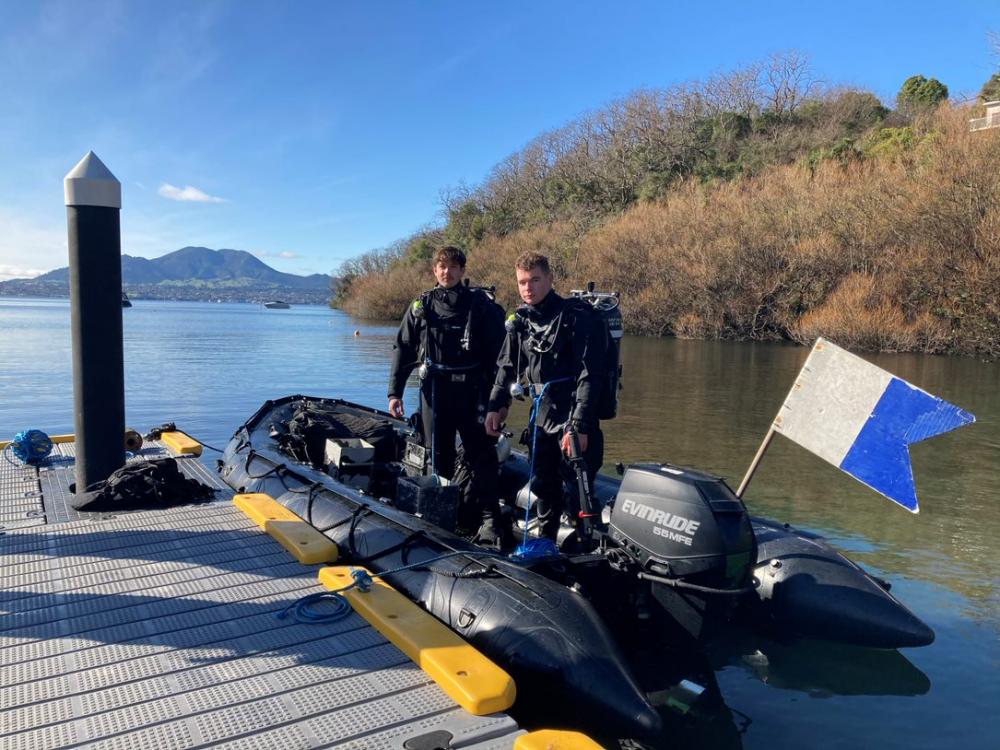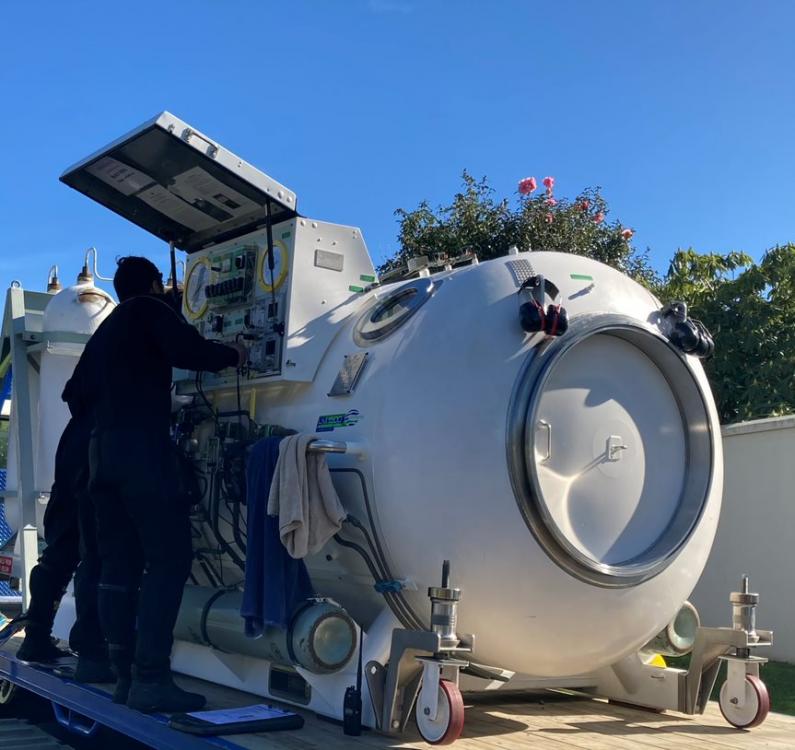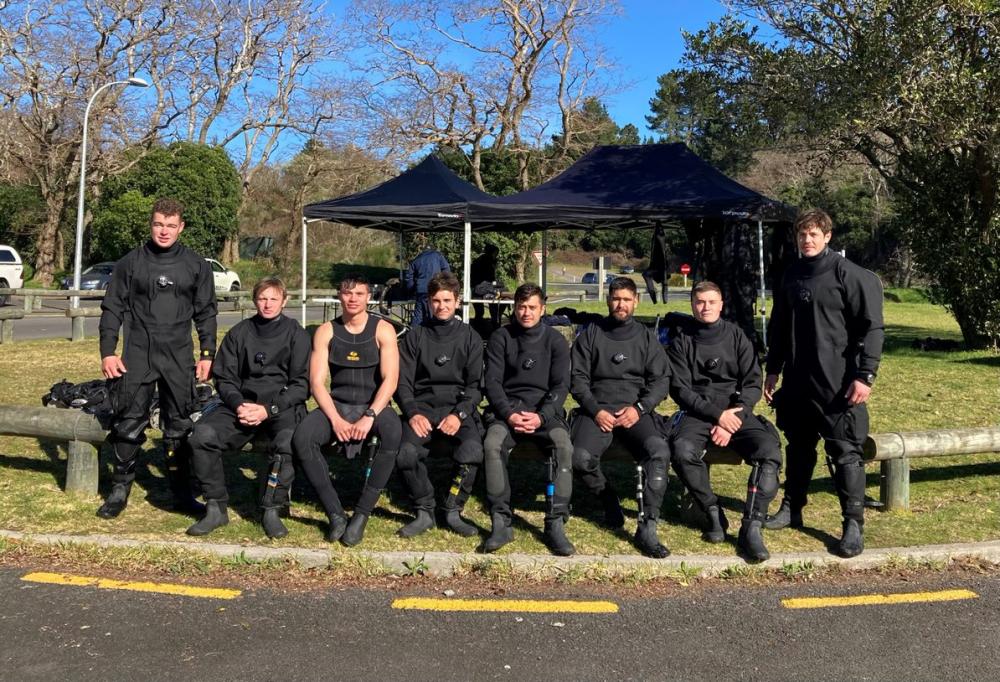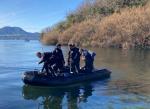With an increasingly challenged strategic environment - including in our own Pacific neighbourhood - it's always interesting to get a sense of the training provided to those who put themselves forward as that thin line of defence between New Zealand and a whole lot of potential trouble.
Here we have the Navy's 'Dive Training School' undertaking training in Taupo for those selected to be part of the NZDF's specialist diving team. In just a couple of weeks this group will graduate upon completion of their last major training module - one relating to deep diving - being undertaken here in Taupo.
Training from Little Acacia Bay is an annual exercise - and the lake is selected as its tests various different dimensions to the more regular 'at sea' training (diving at altitude and in colder water stresses kit and individuals differently from training at sea level). But Lake Taupo is chosen also because of its depth providing the opportunity, relatively close to shore, to go 'deep' whilst also having quick and ready access to a shore based decompression chamber should a mishap occur.
Once this final course is completed these graduates will join a specialist team of around 40 who have the skills and mandate to undertake mine clearance and underwater explosive work, who have the ability to do engineering checks on ships and port infrastructure and, of course, conduct search and rescue for missing persons.
Not only does this training form part of the broader NZDF fabric which, ultimately, helps keep NZ from harm, it also contributes to the collective security of our region as a whole. The Navy's diving squad were deployed earlier this year, for example, in the immediate aftermath of the devastating underground volcanic eruption in Tonga where they were utilised to check the structural integrity of Tonga's port infrastructure.
Credit: Rupert Holborow.




